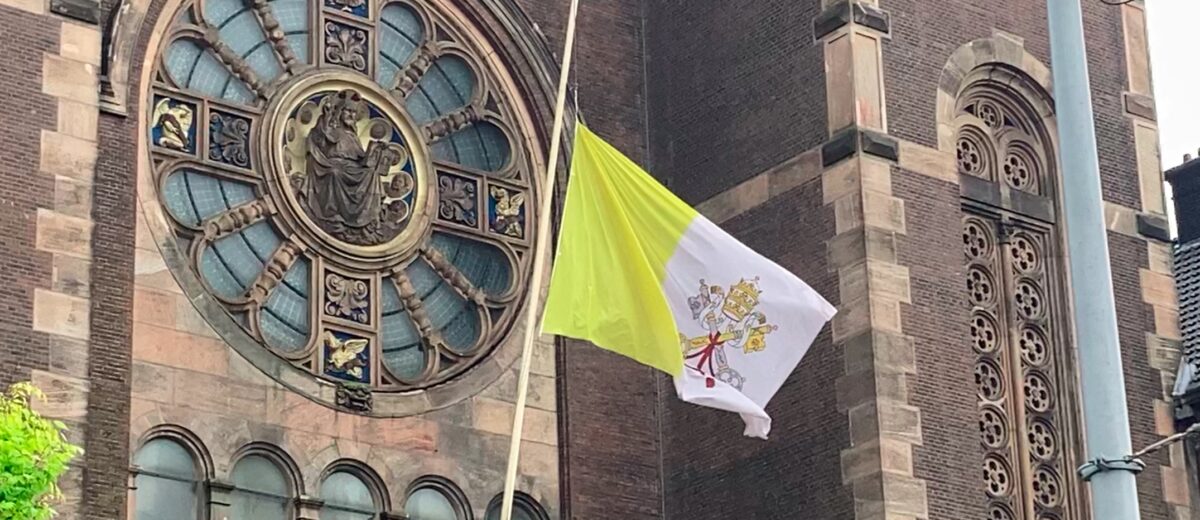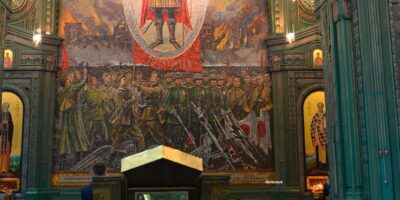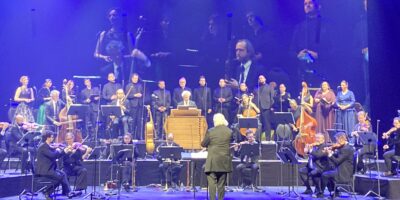Flags around the globe hang half-mast as Catholics and people of goodwill world-wide mourn the passing of Pope Francis.
We find ourselves in a most fragile moment of geo-political affairs with much hanging in the balance, especially in Ukraine and Gaza. As world leaders converge on Rome for Francis’s funeral, the foreign affairs committees of Britain, France, the Czech Republic, Lithuania, Latvia, Estonia and Ukraine have urged America to stop appeasing Russia.
In Francis, the world has lost a voice for compassion, justice and truth when it is most needed. His reminder to American leaders about the Good Samaritan as recently as last week, for example, was a timely rebuke to current xenophobic policies stirring fear among millions. Whoever is pope has a global moral voice whose stance on migration, war, climate change, poverty and social justice carries weight worldwide.The leadership of one of the world’s most influential and oldest institutions should concern us all.
It has had a colourful history embracing both saints and sinners. Most recently, John Paul II’s central role in the downfall of communism is universally recognised and boosted his canonisation. Benedict XVI won the respect of secularists like Jürgen Habermas, promoted environmental awareness and demonstrated humility in the first papal resignation in 700 years. Francis connected with the poor, oppressed, marginal and vulnerable, even washing the feet of street people.
In contrast, the tenth century had already seen seven or eight papal elections before the 18-year old Pope John XII was installed in 955 for a nine-year reign later called the Rule of the Harlots or the Pornocracy. This Saeculum obscurum, ‘dark age’, ended when John died of a stroke while supposedly in bed with a married woman – one of the lowest points of the history of the papal office.
Different
World history could have been very different had Pope Adrian VI not died (through poisoning?) after just a year in office, 1522-23. He attempted to root out the corruption and immorality in the Vatican, fuel to Luther’s fire, following a string of corrupt not-so-Holy Fathers. Alexander VI (1492 to 1503) romanced several mistresses, fathering numerous illegitimate children with his married mistress. Pope Julius II (1503 to 1513), nicknamed ‘the Warrior Pope’ for his incessant wars, also faced charges of lewd sexual acts alleging that he was ‘a sodomite covered with shameful ulcers’. Pope Leo X (1513 to 1521) promoted indulgences to cover papal debts and the building costs of St Peters, offering worshippers a deal: pay for their sins or be denied entry to heaven. ‘Transactional’ would have described him well.
Adrian was in Spain when he was elected in 1521. He was shocked when he finally heard the ‘news’ months later. His reputation for integrity, piety, moral seriousness and administrative competence had apparently appealed to some of the cardinals sick of the corruption, worldliness and chaos in Rome. Dutch by birth, and mentor both to Erasmus and the young Charles V, Adrian had been educated and influenced by the Modern Devotion movement which stressed the devout life of simplicity, humility and discipleship as lived in The Imitation of Christ – the title of the movement’s famous devotional book by Thomas a Kempis.
When he finally appeared in Rome, almost eight months after his election, Adrian declared Rome’s ill repute to be the talk of the whole world. He exhorted the cardinals to banish corruption and luxury and to set a good example by joining him in the cause of reform. He met sullen resistance. The system proved too entrenched for him to dislodge. Utterly frustrated, he died unmourned in September 1523.
In a return to the worldly status quo, Adrian’s successor was Leo X’s nephew. Pope Clement VII (1523 to 1534) changed his political views to match those of whomever was the most powerful and wealthy at any given time. Charles V, among others, accused Clement of being a shepherd who abandoned his flock, returning as a wolf.
Advocate
On May 5, cardinals from all corners of the globe will gather in the Vatican to begin the process of choosing a successor. The film Conclave offered us an insightful if dramatic portrayal of the process of interplay between political maneuvering and spiritual discernment, involving regional influences, theological emphases and responses to contemporary challenges. We can all pray for God’s Spirit to guide the cardinals to elect a worthy heir to the legacies of recent popes. May he (could it one day be a ‘she’?) be a strong advocate for the values and vision of God’s Kingdom of peace, truth and justice.
Recent conclaves have only lasted two or three days. As we gather in Warsaw on May 9 & 10 for the State of Europe Forum to reflect as Christians on our responses to today’s many challenges, we probably will have already heard the words: Habemus papum – ‘we have a pope’.
You can still join us in Warsaw at this key moment of transition.

Till next week,



